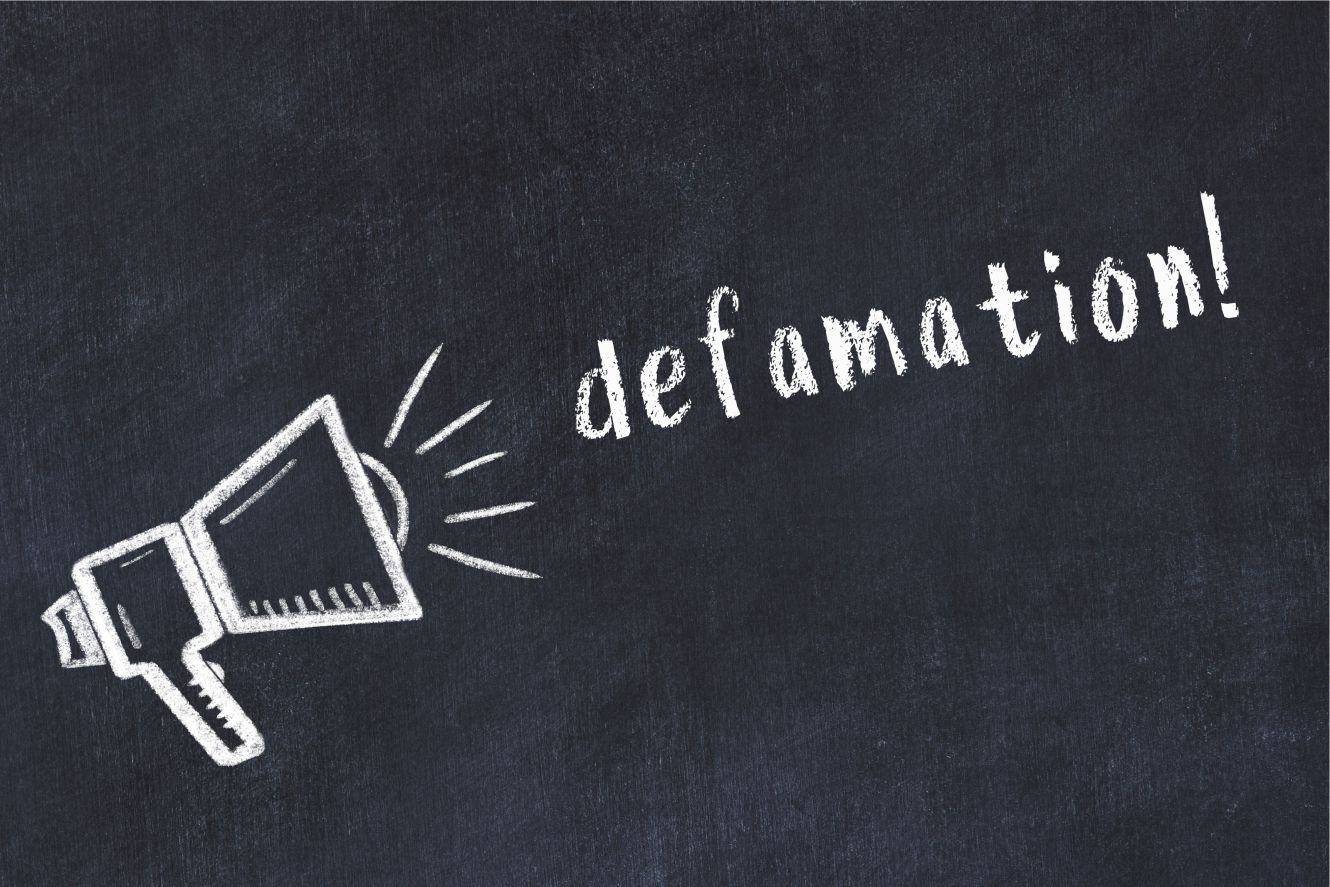This article was written and edited by the team at Anoop & Co. – AOR Anoop Prakash Awasthi, Adv. Parthvi Ahuja and Atluri Sri Vidya.
Defamation is a serious offence that can cause significant harm to a person’s reputation and character. Defamation laws in India are governed by Sections 499 and 500 of the Indian Penal Code (IPC). In this article, we will discuss the legal provisions of defamation in India, including its definition, elements, and defenses, as well as the consequences of committing defamation.
Introduction:
Defamation is a legal term that refers to any statement or communication that harms the reputation of an individual or entity. Defamation is considered a civil wrong and a criminal offence in India. Section 499 of the IPC defines defamation as “Whoever, by words either spoken or intended to be read, or by signs or by visible representations, makes or publishes any imputation concerning any person intending to harm, or knowing or having reason to believe that such imputation will harm, the reputation of such person, is said, except in the cases hereinafter expected, to defame that person.”
Elements of Defamation
The elements of defamation under Section 499 of the IPC are:
- Imputation – It refers to the communication or statement made about the person.
- Publication – It refers to making the imputation known to a third party. The third-party could be anyone, including an individual or a group of individuals.
- Harm to Reputation – The imputation should be such that it harms the reputation of the person concerned. The harm caused could be in the form of injury to their character, credit, or reputation.
- Intent or Knowledge – The person making the imputation should have the intent to harm or should know or have reason to believe that such imputation will harm the reputation of the person concerned.
Defenses against Defamation
The defenses against defamation under Section 499 of the IPC are:
- Truth – If the imputation made is true, then it cannot be considered defamation. The burden of proof lies with the person making the imputation.
- Public Interest – If the imputation is made in the public interest, then it cannot be considered defamation. This defense is applicable when the imputation is made for the public good, such as exposing corruption, wrongdoing, or illegal activities.
- Fair Comment – If the imputation is a fair comment on a matter of public interest, then it cannot be considered defamation. This defense is applicable when the comment is an opinion and not a statement of fact.
- Consent – If the person concerned has given their consent for the publication of the imputation, then it cannot be considered defamation.
- Privilege – If the imputation is made under a legal or moral duty, then it cannot be considered defamation. This defense is applicable when the communication is made during judicial or legislative proceedings, or in the discharge of a duty.
Penalties for Defamation
Section 500 which provides for the punishment for defamation. The punishment for defamation is imprisonment for a term of up to two years, a fine, or both. The offence of defamation is non-bailable and cognizable. The aggrieved party can file a criminal complaint in a court of law against the person who has committed defamation.
Landmark cases
Defamation law in India is primarily governed by Sections 499 and 500 of the Act. These provisions deal with both civil and criminal defamation and provide for punishment in the form of imprisonment for up to two years or a fine, or both. Defamation is a serious offence that can cause significant harm to an individual’s or entity’s reputation and character. Over the years, several landmark cases have shaped the development of defamation law in India. Let us analyze some of these cases in detail:
This landmark case of New York Times Co. v. Sullivan, in the United States set the standard for defamation law, particularly the requirement of actual malice in defamation cases involving public officials. In India, courts have often cited this case in their decisions. For example, in the case of P.N. Duda v. P. Shiv Shanker, the Supreme Court of India cited New York Times Co. v. Sullivan and held that the law of defamation in India also requires the plaintiff to prove actual malice on the part of the defendant.
In this case, Ram Jethmalani v. Subramanian Swamy, the Supreme Court of India emphasized the importance of free speech in a democratic society and held that fair and honest criticism of public figures is protected under the right to freedom of speech and expression. The court also recognized the defense of truth in defamation cases and held that the burden of proving the truth of a statement lies on the defendant. This case reaffirmed the importance of protecting free speech while balancing the right to reputation.
In the case of Tata Sons Ltd. v. Greenpeace International, which involves a defamation suit filed by Tata Sons against Greenpeace International and others for allegedly defaming the company and its subsidiaries. The Bombay High Court held that the right to reputation is not absolute and is subject to reasonable restrictions under the law. The court also recognized the defense of fair comment and held that comments made in the public interest or for the public good are protected under the law. This case demonstrated the importance of balancing the right to reputation with the right to free speech and the public interest.
In the case of Shreya Singhal v. Union of India, which involves challenges to the constitutionality of Section 66A of the Information Technology Act, which criminalized online speech deemed offensive or caused annoyance. The Supreme Court of India struck down the provision, holding that it was violative of the right to freedom of speech and expression guaranteed under the Constitution. The court also recognized the importance of protecting online speech and held that the right to freedom of speech and expression extends to the internet. This case established the principle that the right to free speech and expression is fundamental and must be protected even in online speech.
In this case, Sahara India Real Estate Corporation Ltd. v. SEBI, the Supreme Court of India recognized the importance of public interest as a defense in defamation cases. The case involved a defamation suit filed by Sahara India Real Estate Corporation against the Securities and Exchange Board of India (SEBI) for issuing a press release that allegedly defamed the company. The court held that if a statement is made in the public interest and is based on true facts, it cannot be considered defamatory. This case emphasized the need to protect the public’s right to know and the importance of balancing the right to reputation with the public interest.
Further in the case of Indirect Tax Practitioners’ Association v. R.K. Jain, (2010) 8 SCC 281 the Supreme Court of India held that a statement made in a judicial proceeding is protected under the law of absolute privilege, even if it is defamatory. The case involved a defamation suit filed by R.K. Jain against the Indirect Tax Practitioners’ Association for allegedly defaming him in a letter written to the President of India. The court held that the letter was protected by absolute privilege as it was made in the context of a judicial proceeding. This case emphasized the importance of protecting the freedom of speech of those who participate in judicial proceedings.
In conclusion, these landmark cases have played a crucial role in shaping defamation law in India. They have emphasized the importance of protecting free speech while balancing the right to reputation, recognized important defenses such as truth and fair comment, and established the principles of public interest, absolute privilege, and artistic freedom. It is crucial to understand these principles to navigate the complexities of defamation law and to exercise caution while making statements about individuals or entities to avoid causing harm to their reputations.
Conclusion
Defamation is a serious offence that can cause significant harm to a person’s reputation and character. The legal provisions of defamation in India are governed by Sections 499 and 500 of the IPC. Defamation can be proved if all the elements, such as imputation, publication, harm to reputation, and intent or knowledge, are present. However, there are defenses available against defamation, such as truth, public interest, fair comment, consent, and privilege. The punishment for defamation is imprisonment for a term of up to two years or a fine, or both. Therefore, it is essential to be cautious while making any statement or communication about an individual or entity.
The consequences of defamation can be severe, and it can affect a person’s reputation, livelihood, and social standing. The victim of defamation can also suffer from mental anguish and emotional distress. Therefore, it is crucial to be mindful of the impact of one’s words or actions on others. It is also important to note that social media and the internet have made it easier to spread defamatory content. Therefore, it is essential to be responsible while using social media and the internet and to refrain from making any defamatory statements about others.
In conclusion, defamation is a serious offence that can cause significant harm to an individual or entity’s reputation and character. The legal provisions of defamation in India are governed by Sections 499 and 500 of the IPC. Defamation can be proved if all the elements, such as imputation, publication, harm to reputation, and intent or knowledge, are present. However, there are defences available against defamation, such as truth, public interest, fair comment, consent, and privilege. The punishment for defamation is imprisonment for a term of up to two years or a fine, or both. Therefore, it is essential to be mindful of the impact of one’s words or actions on others and to refrain from making any defamatory statements about others.




